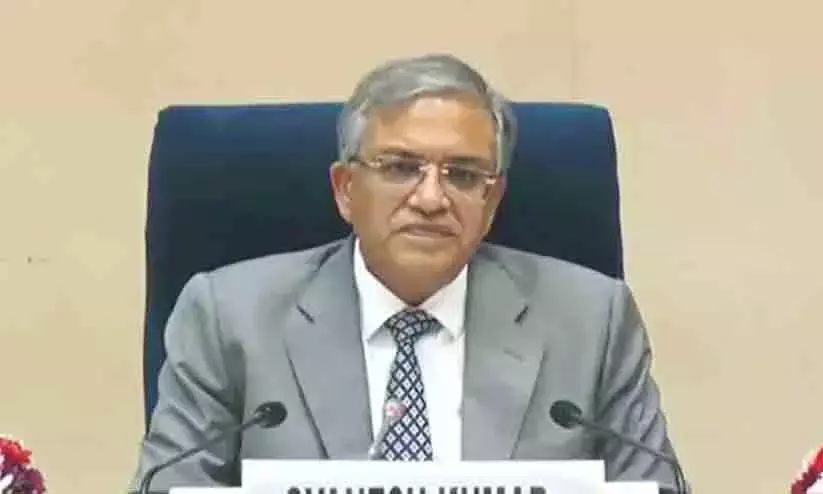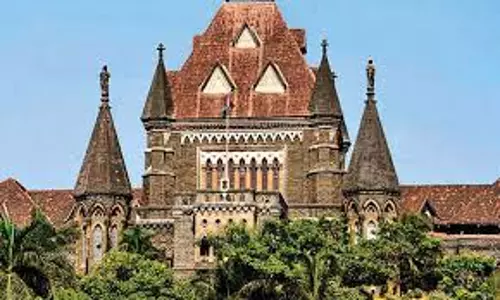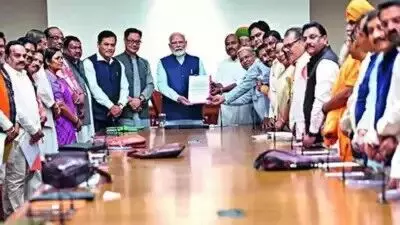
Centre rejects creamy layer for SC/ST reservations, says not in Constitution
text_fieldsThe Union Cabinet announced it would act on the Constitution over the Scheduled Castes (SCs) and Scheduled Tribes (STs) reservation, defying the Supreme Court's suggestions for sub-categorization within these groups.
During a press briefing on Friday, August 9, Union Minister for Information and Broadcasting Ashwini Vaishnaw stated that there is no provision in the constitution envisaged by B.R. Ambedkar for a 'creamy layer' system of reservation for SCs and STs. He also asserted that after extensive deliberation over the matter, it has come to the conclusion that it would adhere to the constitutional framework.
The Supreme Court had recently delivered a judgment favouring the sub-categorization of SCs and STs. This judgment, rendered by a seven-judge constitutional bench, included recommendations for identifying a 'creamy layer' within these categories, aiming to exclude the more affluent members from the benefits of reservations.
This proposal sparked a wave of speculation and concern regarding its potential impact on the existing reservation system. The creamy layer seeks to exclude the wealthier and more advanced members within a group from the benefits of affirmative action.
Vaishnaw emphasized that there is no provision within Ambedkar's constitution for a 'creamy layer' in SC/ST reservations. The Cabinet's decision underscores its stance to maintain the current reservation system without modifications.
The announcement followed a significant meeting earlier in the day, where approximately 100 Bharatiya Janata Party (BJP) Members of Parliament (MPs) met with Prime Minister Narendra Modi. These MPs had expressed their strong opposition to the creamy layer concept, urging the government to reject any such proposal. The Prime Minister responded by assuring the MPs that their concerns would be taken seriously and confirmed that there would be no changes to the existing reservation system.
The MPs’ meeting was attended by key figures including Union Minister for Minority Affairs Kiren Rijiju, Minister of State for Law and Justice Arjun Ram Meghwal, and Minister for Social Justice and Empowerment Virender Kumar. Following the discussions, Meghwal publicly stated that the Prime Minister had committed to upholding the current reservation system without the inclusion of a creamy layer.
The Prime Minister's assurance was echoed in his subsequent statement, where he reiterated the government's dedication to the welfare and empowerment of SC/ST communities. He emphasized that the observations made by the Supreme Court were individual opinions rather than part of the official decision, and thus would not influence the government's policy.
The controversy surrounding the creamy layer proposal has also seen opposition from NDA allies. Notably, Union Ministers Chirag Paswan and Ramdas Athawale voiced their dissent against the sub-categorization judgment. Paswan even announced his party’s intention to appeal the decision, further highlighting the political sensitivity of the issue.
The Supreme Court’s judgment passed with a 6:1 majority advocated for a policy to identify a creamy layer among SCs and STs. The judgment aimed to ensure that the most deserving individuals within these communities benefit from reservations.
Justice B.R. Gavai, one of the judges, argued that implementing such a system was essential for achieving true equality by ensuring that the benefits of affirmative action reach those who are most in need.






















